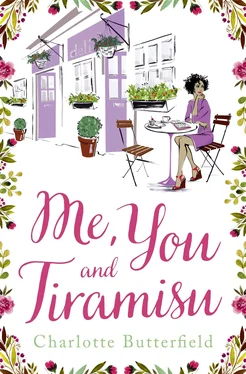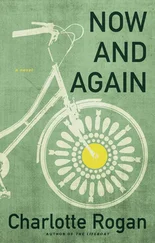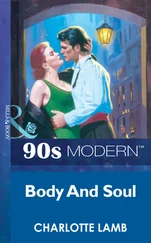Small shabby hotels with paint peeling and no-smoking stickers in the windows along with AA rosettes from the 1980s and sad sun-faded signs that permanently said ‘vacancies’ flashed past. Boards outside advertised en-suites and colour TVs, the height of decadence once, and still perhaps a source of misplaced pride for the host. Occasionally you’d get a better class of bed and breakfast, one that deigned to call itself a ‘boutique hotel’. These had wi-fi and individually decorated rooms, which were sometimes even themed, because apparently there are people who want to pay money to come to the English Riviera and stay in a suite called Out of Africa . ‘Cheaper than Kenya and not as far,’ one sign read.
Growing up in a seaside town was a strange experience, Jayne thought. Your town is almost like a timeshare – wholly yours for the crappy part of the year and handed over to coach-trippers as soon as the sun shines. They always felt slightly superior to the grockles – as they called them then – watching them squealing while paddling their pasty white legs in the sea or queuing up for overpriced aniseed balls and fizzy cola bottles in the pick-n-mix at The Pavilion in Torquay. Getting their children’s faces captured in pastels by the resident artist sitting on the steps, who worked in Lidl during the winter months. It’s funny how a holidaymaker’s experience of the town you’ve lived all your life in is so different to your reality. Not once in eighteen years did Jayne buy a pick-n-mix bag of sweets, or get her portrait done.
Pine Grove was an imposing, lavender-clad manor house that had once been a beautiful private home before the owners realised in the 1990s that they had wildly underestimated the upkeep costs of such a grand property and sold it to some eager-eyed developers for bulging pots of cash. Home now to twenty of the area’s most affluent pensioners, it was considered The Place to end your days. Morbidly, much excitement was felt among families on the waiting list whenever news of a resident’s demise hit the grapevine.
Helen Brady, the twins’ grandmother, was the daughter of a wealthy fishing family that owned twenty of the area’s trawlers. After her father’s death in the Second World War, her new husband, Tom, took over the business. He’d been one of the ‘lucky’ ones, making that coveted return journey from France, albeit not as complete, physically or mentally, as he had been when he’d left just days after their wedding. He’d suffered the indignity of having tiny shards of shrapnel embed themselves in his thigh and groin, making him, at the age of twenty, in all likelihood infertile. Helen had borne the news with characteristic fortitude. Twenty years later, just as she was coming to terms with early signs of the menopause, the family doctor had told her the news that she was, in fact, expecting a baby.
Helen and Tom had enjoyed a privileged life in Torquay, living in a large villa that boasted expansive views across the whole of Tor Bay. But even though Helen had never intimated such a thing – she wouldn’t – her granddaughters knew that it must have come as something of a shock when her eighteen-year-old daughter interrupted her quiet idyll by introducing a pair of screaming babies into the equation.
Thankfully their grandparents had stoically risen to the challenge of being the only dependable constant in their drama-filled world. Ever ready to practise spellings, subtly prise off stained uniforms to quietly launder them, listen to their pre-pubescent witterings and whimsy and shoulder their teenage angst with good grace and the benefit of experience and learned lessons. Rachel and Jayne had loved standing on the bench at the end of their garden, hair thick with sea salt being whipped around their shining faces, passing their grandfather’s heavy leather binoculars back and forth between them, excitedly spotting dolphins and feeding the gulls that dipped and swooped over the cliff.
As she had got older and, sadly, alone, Helen had become more introspective, pensively reflecting on the childhood the twins could have enjoyed had she and Tom insisted on raising them, and not given Catherine – Crystal – the benefit of the doubt, again, and again. But hindsight was a wonderful, and quietly destructive, thing.
‘Darlings!’ Her warm, plummy tones greeted the trio as soon as they walked out into the gardens, where she was sitting watching some of the other inmates, guests, how would you describe them? Jayne wondered, enjoy a sedate game of croquet. ‘And this must be the handsome Will I’ve been hearing so much about.’ She started to rise out of her chair, knuckles whitening on the arms, when Rachel and Jayne rushed to push her back down.
‘Granny, sit down.’ Rachel eloquently ordered.
Helen let a little laugh escape, ‘Yes, Sir. How was the trip darlings, was it okay? You must be famished, let me ask them to get a tray of something together.’ She started looking around for one of the staff and raised her veined hand slightly to attract their attention as they sat down on the bench alongside her. ‘I’m so thrilled you came all this way from London. I’m very honoured! Now Will, Jayne and Rachel have told me that you are something of an entrepreneur?’
He smiled and dipped his head slightly, ‘I’m afraid you’ve been duped, Mrs Brady.’
‘Please, call me Helen,’ she interrupted.
‘Helen. I’ve got a very small Italian delicatessen in Richmond selling hams and cheese, that sort of thing, hardly Dragons Den material.’
‘And he makes the most delicious chutneys, Granny. We’ve actually brought you a hamper of things – we’ll get it out of the car in a minute.’
‘How wonderful! You needn’t have brought me anything, though; just seeing you down here is such a joy. Now, tell me, Rachel, have you finished that restaurant you were doing at the airport? The drawings you showed me on Skype looked marvellous. What a wonderful way to start your holiday, having supper in a place like that, have you seen it Jayne? Ask to see her sketches, it looks fabulous.’
The rest of the afternoon passed amiably. Helen proved with every sentence that her memory was as sharp as it had ever been; in fact she had no reason to be in a residential home apart from it being an antidote to her loneliness. One of the things Helen had found most difficult to accept about old age was the sad truth that her best days were behind her. She had spent her whole life assuming that tomorrow would be better than today. That this time next year what she was striving for in this moment would be fulfilled and the ambitious prophecies that kept her awake at night would materialise. That one day she would eat dinner from a street cart in Seoul and see the Northern Lights. She would watch Tosca in the Sydney Opera House and hop on a tram on San Francisco’s California Street. Yet, as she attended the funerals of her parents, her siblings, her husband, she began to reach the startlingly bleak conclusion that she’d had her time. For someone like Helen, whose eyes still danced, this was a horrible realisation.
Jayne was tuned into every nuance of her grandmother’s interaction with Will, silently willing her to love him. She knew this was unnecessary; the mutual adoration society had been launched the minute they met.
Helen had actually remembered meeting him back when he was fifteen. Jayne and Rachel had brought him up to visit her and Tom and camp in their back garden one warm July evening. Will had been given a tent by one of his dad’s friends and even if the three teens had put their pitiful money together they couldn’t stretch to paying the exorbitant peak-season ground rent at one of the hundreds of campsites littering Torbay’s coastline, so they pitched it in Helen and Tom’s garden. Helen had even bought them a small disposable barbecue for them to cook some sausages and marshmallows on, while looking endearingly at her granddaughters’ newfound maturity. Nothing says ‘I’m a grown-up’ more than turning raw food into edible food over a naked flame. Jayne had completely forgotten about this memory until Helen brought it up.
Читать дальше












